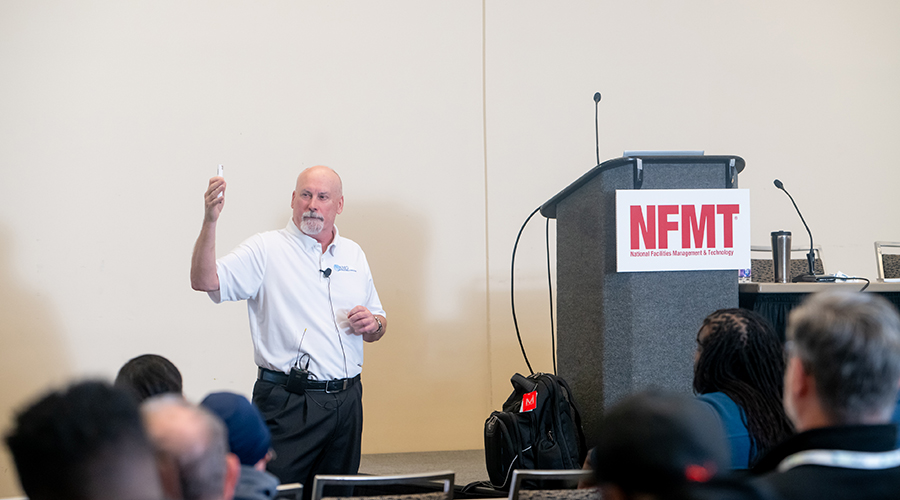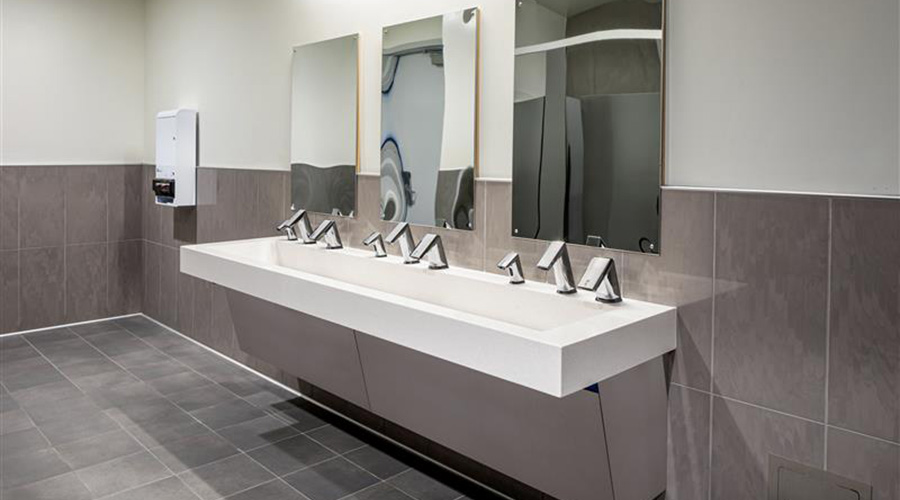
Better Buildings Initiative is a Decarbonization Partner for Facilities Managers
The initiative can help with funding and is also exploring new heat pump technology. November 7, 2024
By Jeff Wardon, Jr., Assistant Editor
Facilities managers need help in their fight against the growing threats from climate change, and fortunately, there are programs such as the Better Buildings Initiative that are willing to lend a hand. The initiative offers many different programs to help drive innovation, secure funding and demonstrate real-world examples for decarbonizing facilities.
To better understand what these offerings mean for facilities managers, FacilitiesNet spoke with Maria Vargas, senior program advisor and director of the Better Buildings Initiative.
FacilitiesNet: The Better Buildings Commercial Building Heat Pump Accelerator aims to bring next-generation heat pump technology to market by 2027. How do you envision this initiative impacting the commercial sector's energy efficiency and decarbonization efforts?
Maria Vargas: We know that space conditioning accounts for about 40 percent of a commercial building's energy use. It’s a big contributor and heat pump rooftop units are estimated to reduce greenhouse gas emissions and energy costs by about 50 percent. What we're bringing to market through this accelerator – which is a technology that doesn't exist – is a heat pump for commercial buildings that will work in all climate zones. We expect we can save about $5 billion a year in the U.S.
So, the changes in the commercial sector are going to be dramatic and there's a really great opportunity to bring technology to market through this accelerator. This is why program partners are always so excited to work with all the manufacturers as well as a bunch of end users. That's the very cool thing about this accelerator – we not only have all the manufacturers in the room, but we're working with real end users like IKEA, Target or Amazon who are looking for this technology. It really helps the manufacturers make sure what they bring to market is going to be useful to end users.
FacilitiesNet: How have the Financial Allies in the Better Buildings Initiative successfully extended $37 billion for these projects, and what impact has this had on accelerating decarbonization?
Vargas: It's helped make decarbonization happen is the bottom line. One of the reasons that we started this program in 2011 is to make sure we had financial allies. We're working with end users who could supply financing because one of the big barriers we were being told by the market and market players to energy efficiency was a lack of financing.
So, if an organization can't finance the work internally, these financial allies provide the capital if organizations are interested in funding work with zero impact on their balance sheet. The $37 billion, which has been committed and extended by financial allies, has really allowed movement in the marketplace where there wouldn't have been movement otherwise. This is because some of these organizations didn't have the funds internally to be able to spend on these things. It's been a game changer for lots of organizations to be able to do this work.
FacilitiesNet: Can you highlight some key lessons or innovative solutions that have emerged from collaborations such as the Better Climate Challenge Road Show?
Vargas: The reason we did them is because one of the biggest ways of thinking about efficiency and decarbonization are something we need to undo in the market. That thinking has organizations feeling like they can only learn from organizations that look like them.
We've talked to hospitals who say, oh, that's interesting with all the other work you're doing across the economy, but we can only learn from another hospital. While there are some things that make energy use unique in a hospital, there are a lot of similarities to how hospitals are large energy users. So, understanding that and changing that mindset so organizations can look to and learn from organizations that don't look like them or that don't have the same kind of building is a powerful lesson. We're still working to educate people across the economy.
Then from the Road Show, the goal for the Better Climate Challenge is to demonstrate that organizations are decarbonizing, they're doing it successfully and a lot of savings on their part. The roadshow allows us to share with others what's going on in the market now to decarbonize. Also, it's not just decarbonizing one kind of building, they’re data centers, industrial plants, hospitals and retail organizations. There’s lots of learning and that's the reason we do the Road Show, because showing what's going on is far more impactful than just putting words on a page.
Jeff Wardon, Jr., is the assistant editor for the facilities market.
Next
Read next on FacilitiesNet












